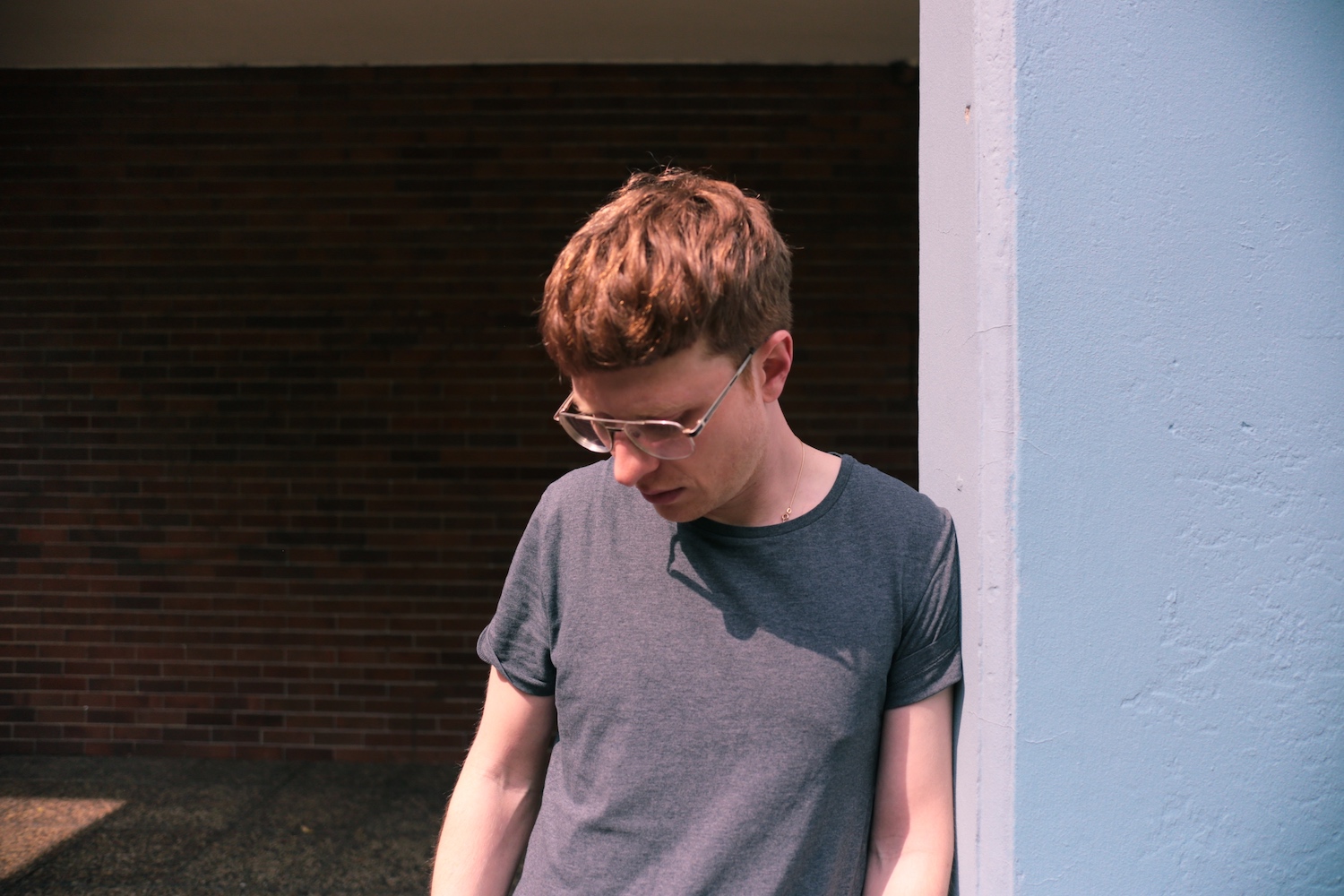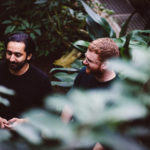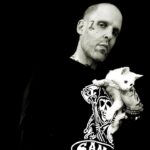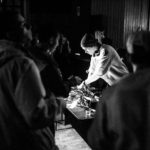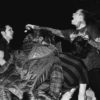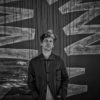Photography LINDA WAGENER
Having recently fallen for the post-American Men output of Claude Speeed, we asked the producer to share an exclusive set of experimental songs that double as sedatives. Because Trump. And Twitter. And hate-fueled rallies. And prickly weather patterns. And most importantly, NO END IN SIGHT.
Here’s what the Scottish musician passed our way, along with an extensive interview that covers his complete background, leading right up to last month’s Infinity Ultra LP….
tracklisting:
claude speeed – timeless earth
claude speeed – untitled live guitar improv
konx om pax – beatrice’s visit (huerco s extended stay the morning version)
mmmd – az álmok itt érnek véget (rész 2)
tony jaguar – dawn, a man
danny clay – 10.30.2015 (ii)
claude speeed – integration loops
nathan fake – hours days months seasons (olga wojciechowska rework)
rhjames – piano drone
ausschuss – ravoir
emra grid – the same face
marateck – vantablack ii
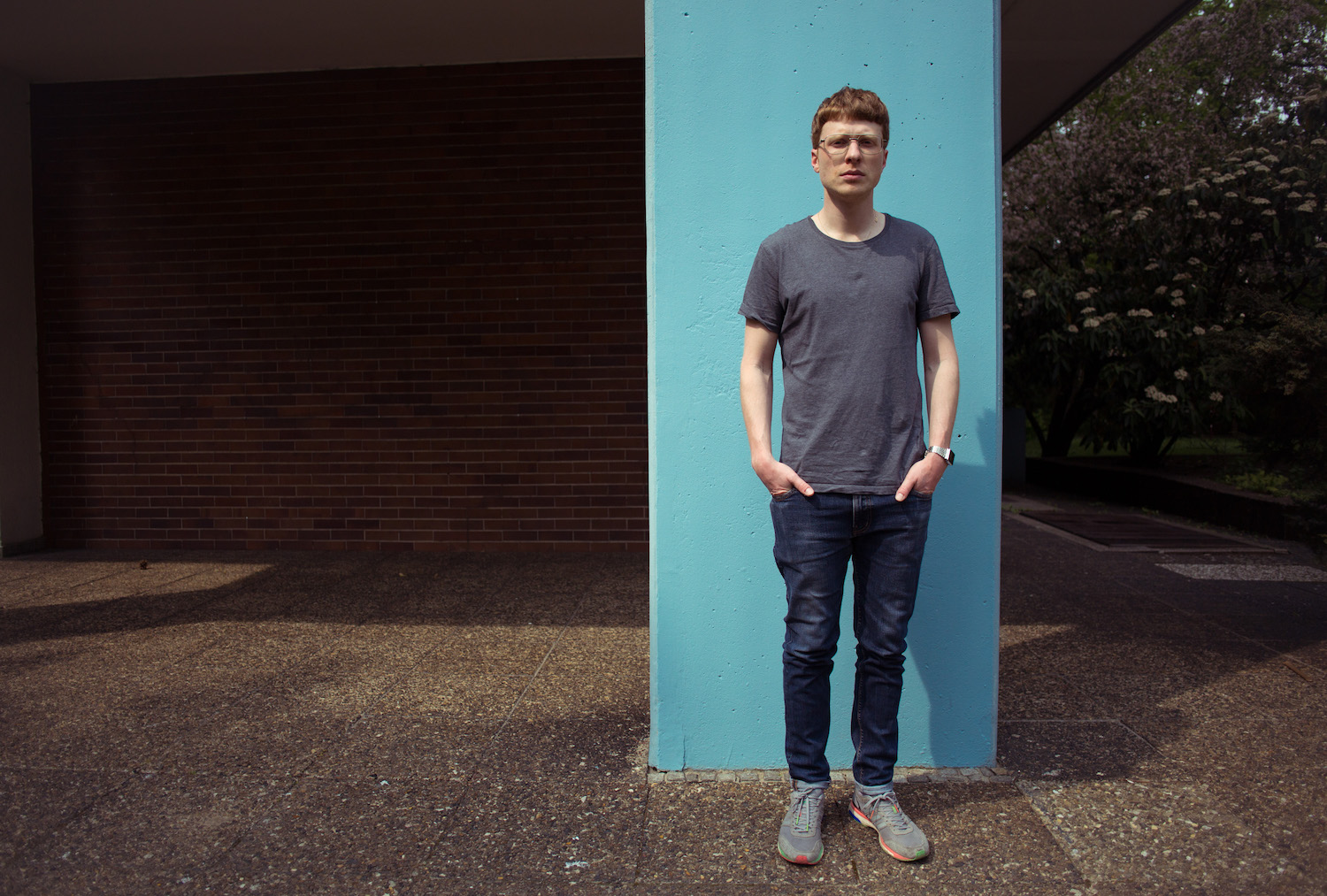
Can you start by discussing the mix you did for us—its general vibe, how you approached making it, etc.?
I’ve been streaming a lot of ambient and drone music at work the last few months. It’s been a chance to hear things I don’t already own, and therefore haven’t committed to, and that’s been really freeing and fun. Not to mention productive. And what’s cool is that the same kinds of tracks are also a total adventure if you listen on headphones alone at night. So I wanted to include a series of long droney tracks in the hope that people might either get some kind of practical enjoyment or “use” out of it, or hopefully even have kind of an interesting experience.
It’s kind of hard to pick out key tracks; they all have a very strong identity—to me at least. I tried to add to that with some little samples here and there but not get in the way. Then at the end there’s a math-rock song by Marateck that’s just so amazing—so in control but also quite funny in parts, an absolute lesson in composition, arrangement and playing. Kind of an energy boost, providing an escape velocity, after the long contemplative stuff.
Before you became a solo act, you released one record with the band American Men. I love how you guys described it: “prog for a generation raised on Boards of Canada and short attention spans.” Any chance you’ll release more new material down the road?
There are two sides to any answer on that. It’s been a running joke between us for years that we’ve been unable to get anything finished. We seem to have been saying it forever, since Cool World came out even. Whenever I’m in touch with anyone from the band I make sure to ask at least once when they’re going to finish the record, if it’s almost done etc, and they ask me the same. Although, we’re sort of finally getting around to it I suppose.
On the other hand, more seriously, we suffered a pretty tragic loss three years ago when [drummer] Robbie [Cooper] died. Aside from the personal bit of that—I’d known Robbie since I was a teenager; he played in my favourite Scottish band, Laeto; we became friends through the music scene and then played in a band together—it obviously had a big effect on us as a band. That notwithstanding, there’s definitely a chance we’ll release more. I mean we have some very good demos at least, or at least I think so.
In many ways, the music you’re making now lines up nicely with the power-ambient vibes Steven Shade has embraced with his Sevendeaths project. Were you the closest with him in terms of personal taste back when you guys were working on American Men?
Everyone in the band had pretty strong crossovers in terms of musical taste; in a way, that’s how we ended up playing together. Ultimately I think Steven’s music is really quite true to something I loved about the music we would see live. It’s noisy and distorted and sad as fuck, and those things were bound to have an expression in my output. The first time [American Men] heard the sound of his “guitar” synth VST in the rehearsal room, we all went mental because it was just so heavy and authentic. And hearing his records made me realise that I didn’t have to shy away from those elements.
How did you envision your music under the Claude Speeed name sounding at first, and how has it evolved over the past three years? (I assume a lot of that evolution is right there on the new record, since it includes some older compositions.)
I guess I just imagined it would be the same as the band but without drums. But in the end I don’t think it ever sounded all that much like it, save for the really explicit references to that music, like “Entering the Zone.” The first and last track on the record are right from when I started intentionally making tracks under this name—2011 I think—and the audio files that make up “800 Super NYC” is from so long ago that I’ve no idea. Whereas “VZJD” is relatively new. I think the main evolution might’ve been a willingness to finish ideas/songs that are a little less “nice”; and a bit more confidence with production and sound design. That said, working with a proper mixing engineer, Erik Breuer, probably made a bigger difference to the final sound.
Whether it’s melodic ambient music or noisier pieces, a lot of your work is a perfect match for the tough emotional times we’re now living in. Which kinda makes me wonder: what do you listen to when you need to drift off into a drone-y, meditative head space?
To be honest if I’m alone for more than about three minutes my face goes blank and my mind wanders. I get into a bit of a trance; I don’t need music for that [laughs]. I need music to get out of it. But if I want to concentrate, I listen to very washy drone, often Lawrence English Tim Hecker, or Grouper.
How about when you’re angry or need to vent?
At the moment a lot of metal, or whatever you’d call it—doom/punk/grindcore/powerviolence that I’ve either known for a while, like Botch, Converge, Burning Witch, or just found on YouTube and Bandcamp like Crossed Out, No Comment, Dark Habits, Crewneck. I was gonna say BlackTelephone666, but actually I find his stuff kind of joyous and fun even though it’s so superficially quite aggressive.
Many people define ambient music in vastly different ways. What does it mean to you these days, as both a listener and artist?
[Laughs] That’s kind of a loaded question for me, insofar as I always describe my music as ambient when, by lots of other people’s definitions, it probably totally isn’t. It’s mostly not intended to be background music, or scene-setting really…. I don’t know. I’m the worst with genre definitions, because I’m totally happy to use a term when I don’t even really know what it means. I used to always say no-one cares about genres; I don’t know if it’s true, but I think perhaps it should be.
What were some of the non-musical influences on your new record?
A lot of visual references, especially things on a large scale. I’ve often looked at the Abandoned Berlin blog to get inspiration. The same with collections of pictures of Brutalist architecture; any land art, particularly Michael Heizer’s City project…. Also Adrián Villar Rojas, whose work at documenta in 2012 resonated a lot with me. The anime I was so obsessed with as a kid, which is kind of similar to that work. Particularly Laputa, which I saw randomly as a child, on TV, and didn’t know how to find it again. I was so blown away by it that as soon as the credits rolled I ran to my best friend’s house, and knocked on the door. He answered it and I just burst out with “did you see that?!” and he said “yes!!”.
I also had some weird experiences with hypnopompic hallucinations and sleep paralysis that have sort of been expressed in the music. I’ve been through at least three phases of having it nearly every night, and seeing all sorts of crazy shit…. One time I woke up in a hotel room convinced I was in a forest; I got up and walked around, and the room came back. Most of the confrontational or angry side of my output comes from reading about politics, economics, technology, I suppose. By which I mean “shit people say on Twitter”.
What about some surprising records or artists that impacted your creative process over the past year?
I kind of have the feeling that nothing is surprising in the present moment. But maybe some not-so-obvious influences—in the sense that they’re presumably not that audible on the album—have been Drive Like Jehu, Slint, d’Eon, Manabu Namiki, PC Music, DJ Paypal, Perfume, Elliott Smith, Lord of the Isles.
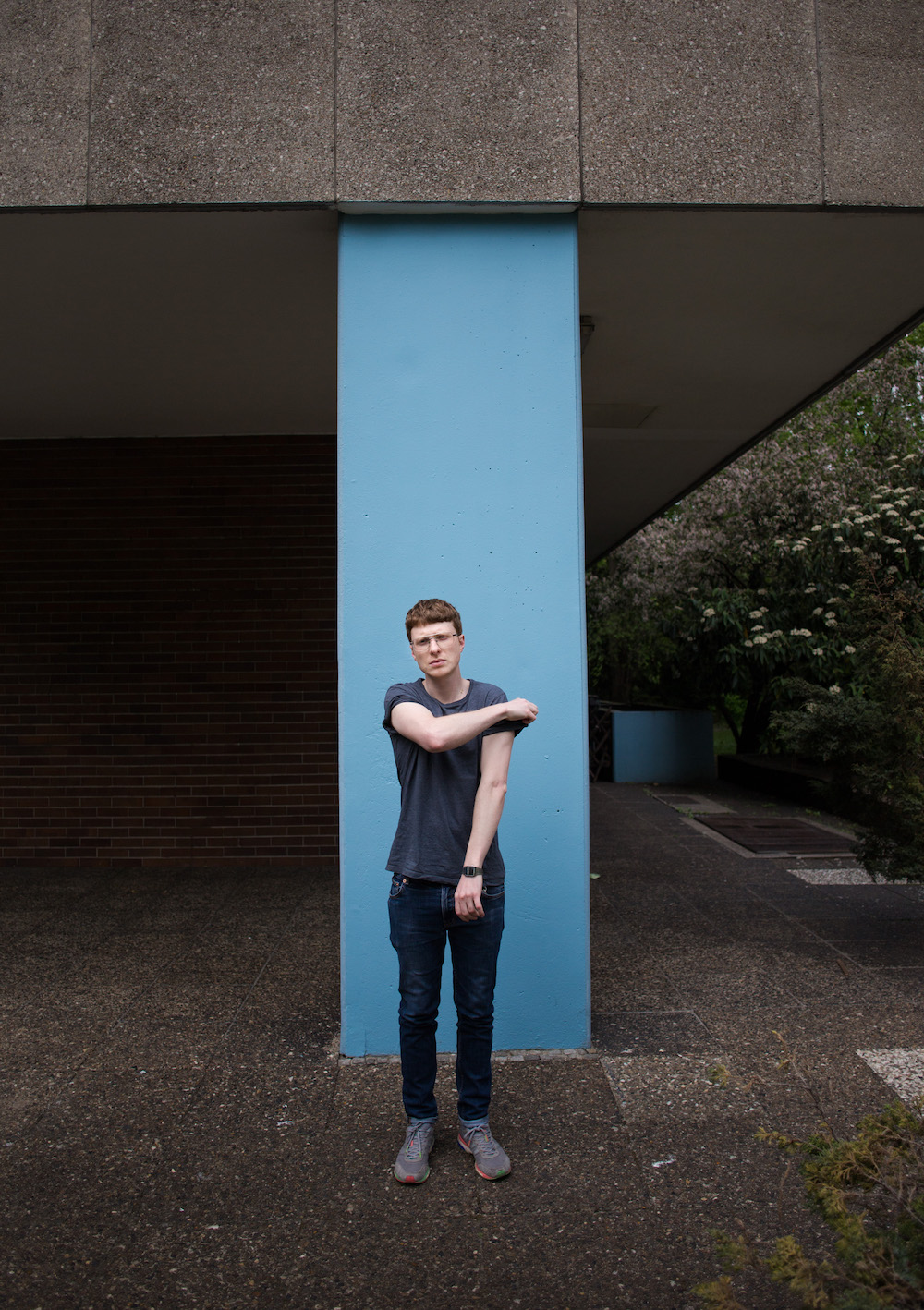
A lot of your early material used field recordings from your travels around Southeast Asia and India. Do you still use samples from that time period today?
I actually try really hard not to, because I want to avoid writing the same songs again, and I want to avoid being nostalgic about it. In the end I don’t think any songs on Infinity Ultra have any of those field recordings on them. Some other recordings though….
Why did you decide to travel right after attending the Red Bull Music Academy in Madrid? Did it seem like a “why not?” moment—the perfect chance to get out of your comfort zone and inspire yourself on a deeper level creatively, especially since you’d also left a career as a corporate lawyer?
I’d already decided to travel. The influence that RBMA had in that regard was making me more receptive to new or unplanned experiences, and also to treat that time off not necessarily as a sabbatical with the intention to just do the same job again, or return to Scotland, but to make some music and see what might happen.
What was one of your most favorite cities on that trip and why?
That’s kind of impossible. I don’t know…. I’m gonna say Singapore actually. It was just such an amazing surprise. I was tired of heat, and humidity, and being so far from home, and just the way my flights worked out I was gonna be there for like 10 days or something, and was really not looking forward to it. You know, like everything’s expensive and that you go to jail if you eat chewing gum or whatever clichés I had. But a friend had introduced over email to a group of people he knows there, Syndicate collective, and they sort of took me in, and I just had the best time with a whole gang of super intelligent, funny, nice people.
Do you still travel a lot or do you spend most of your time in Berlin?
I’ve been a few places in the last few years, including the USA, Japan and Canada, and went back to India a couple of years ago with my girlfriend. But I don’t really have the chance to just disappear for six months like I sometimes want to. Especially during these Central European winters.
You’ve been living in Germany for a few years now. How has its art and music scene evolved during that time, and how do you see your music fitting into the overall direction Berlin is headed in musically?
It’s weird, to be honest. I feel completely apart from whatever is happening culturally and musically in Berlin. I sometimes go to the smaller commercial galleries just to see what’s on, and occasionally to the big ones like Hamburger Bahnhof or Martin Gropius Bau, but I find it hard to connect any of it to the place I live really. They could be anywhere. I always seem to miss the Berlinale. And I know quite a lot of musicians here, but I’m certainly not part of any scene.
Do you find yourself going out less and less the more time you spend there, especially now that the honeymoon period of having all these amazing late-night parties to go to, is over?
Yeah, 100-percent. I used to go out a lot, and it got draining pretty fast. And I realized I liked the stuff that goes with clubbing a lot more than I liked the vast majority of club music. I’m a tourist in a club. And as much as I like listening to weird or experimental music, usually for me the best context for that is at home or on a train or something, not a venue.
I went to every day of a multi-day experimental festival here a few years ago, and by the end of it I was, at least for a while, completely done with live electronic music. It was just too overwhelming, the space was too big, there were too many people, the venue was too impressive almost, and I felt like being there was a betrayal of what actually got me into live music: seeing bands and experimental artists play in tiny, shit venues to 40 people. Last week I went to a tiny venue near my flat, and saw a (post?)punk band, Plattenbau, and had the most fun I’ve had at a show in ages. I might make a bit more effort on that front.
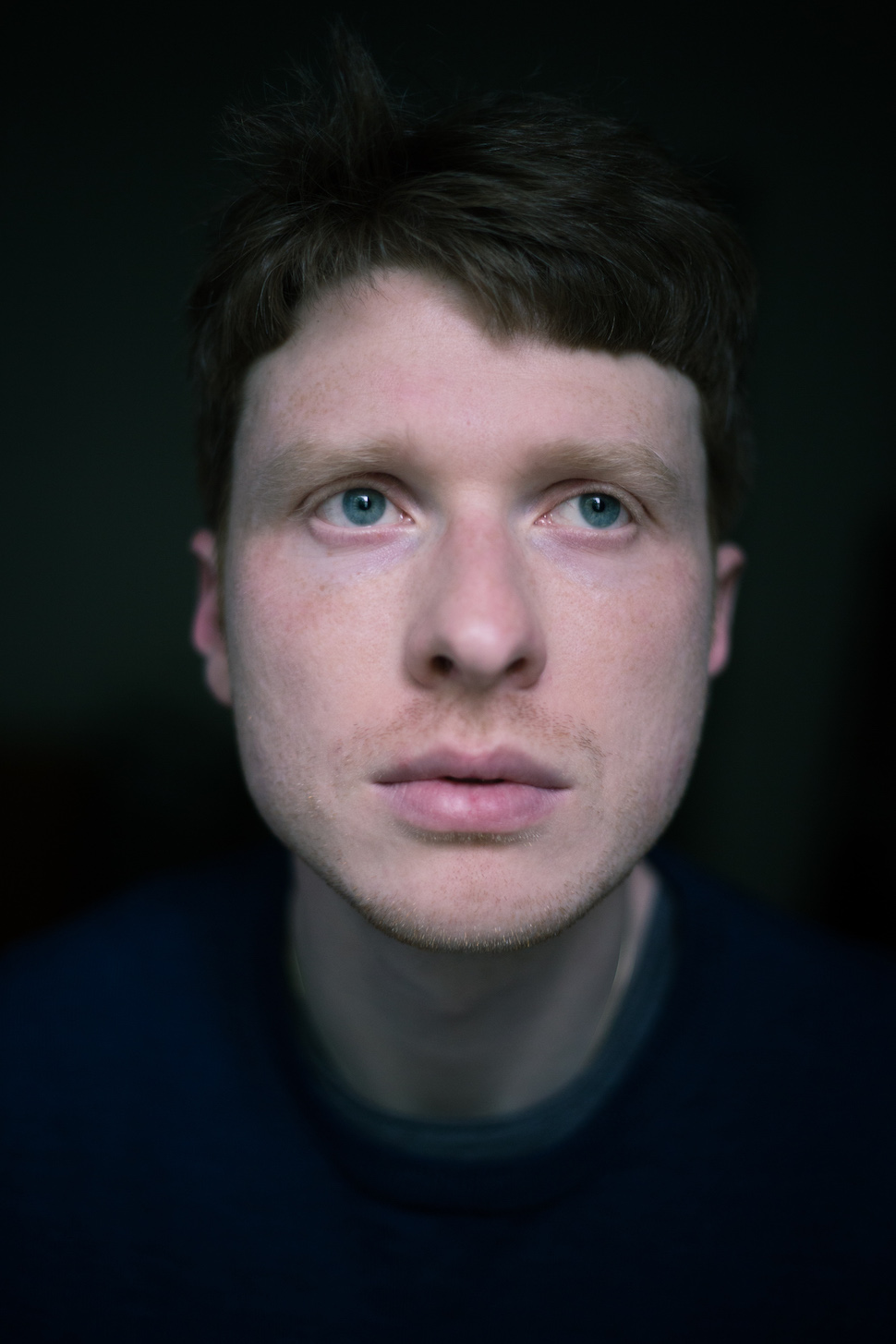
I assume you don’t miss anything about being a lawyer, but I do wonder one thing: as it becomes harder and harder for people like us to make a living in the creative arts, are you afraid you’ll be forced to return to your old day job? Or is it oddly comforting to know that that safety net is there?
I actually got a day job within 18 months of moving here. Not as a lawyer, but not like a million miles away. The safety net was in many ways a bit of a trap. I didn’t have the confidence, nor the necessity, to just try and survive from music, even though I made bits of money here and there, because I knew that I could ask around, or send out a CV, and get a reliable job. Fortunately what I ended up with was working for a small company that I really like, and although my job is not hugely creative, the fact that I make music on the side is seen as an asset, not as a liability like when I was a lawyer. Anyway I like my music better when it’s not related to money.
What can we expect from you next in terms of touring and new recordings?
Touring, I’m not sure. I might be setting up some shows in Scotland with a couple of friends. Otherwise I don’t have an agent and I haven’t been pushing to sort anything out really. Basically, in principle I’d love to play shows, but I don’t now how many venues will wanna fork out for hiring a load of guitar and bass amps for my set to make sense.
In terms of new recordings, I’ve kinda finished something—a collection of the tracks that Mike [Paradinas] and I really like, which go together, but that didn’t fit the album. Mike played a bunch of them on his latest Radar Radio show. More news on that soon.
